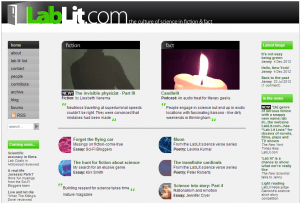Lab lit is not science fiction
In Barbara Kingsolver’s new novel, “Flight Behavior,” a central character is an entomologist tracking the effects of global climate change on monarch butterflies.
The scientist, Ovid Byron, shows up at the Appalachian farm of Dellarobia Turnbow after she discovers a vast immigration of monarchs, displaced from their Mexican wintering spot by floods caused by global warming.
There’s a love story, of course, and a coming-of-age story (Dellarobia finally gets to go to college), and an intergenerational buddy story — her precocious 6-year-old, Preston, bonds with Dr. Byron. But the take-away of this novel is that nature is off kilter, spinning out of control, changing before our very eyes.
As she did in “Prodigal Summer” (2000), Ms. Kingsolver uses fiction to advocate for environmental awareness. But this advocacy is embedded in a compelling narrative of love and loss, opportunities taken or missed, characters who behave in complex and sometimes perplexing ways. Dellarobia Turnbow and her family are dirt-poor, and a summer of incessant rain has left them desperate. The timberland where she discovers the butterflies has already been promised to a lumber company. Save the butterflies or save the Turnbows?
Along with a suspenseful and sweetly told story, the science-nerd reader gets some basic ecology: “The temperature at which a wet monarch will freeze to death,” Dr. Byron tells Dellarobia, “is minus four degrees centigrade” (25 above zero Fahrenheit), meaning the monarchs are threatened by more than the proposed logging. That temperature range, Dr. Byron goes on, is “an inevitable event, for this latitude.”
“Flight Behavior” fits neatly into a genre of serious fiction with a snappy new name: lab lit. I had never heard of it until I started browsing the Web for other novels about science; within minutes I came upon the webzine LabLit.com, which has “Lab Lit Lists” for dozens of novels, films, plays and TV shows.
The Web site’s editor is Jennifer L. Rohn, a cell biologist at University College London and a novelist herself. The list is a work in progress, and anyone can contribute a title.
Lab lit is not science fiction, and in my opinion it’s not historical fiction about actual scientists (though some fictionalized biographies do appear on the list). Instead, in the Web site’s words, it “depicts realistic scientists as central characters and portrays fairly realistic scientific practice or concepts, typically taking place in a realistic — as opposed to speculative or future — world.”
via The New York Times – KATHERINE BOUTON
The Latest Streaming News: Lab Lit updated minute-by-minute
Bookmark this page and come back often
Latest NEWS
Latest VIDEO








